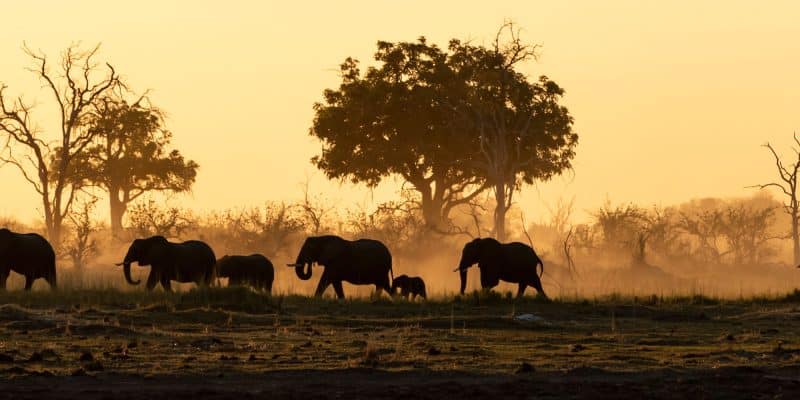Since August 2023, many Zimbabwean elephants have crossed the border into neighbouring Botswana in search of water. The Zimbabwe Parks and Wildlife Management Authority (ZIMPARKS) fears that this mass migration will lead to an increase in confrontations between the animals and humans.
The survival of elephants and wildlife in general is under threat in Zimbabwe. Animals in Hwange National Park, Zimbabwe’s largest, are migrating en masse to neighbouring Botswana because of the drought. The East African country’s Parks and Wildlife Management Authority (ZimParks) is concerned about the situation. “I can’t give a precise number of elephants that have moved, it could be hundreds or thousands. But in any case, there are a lot of them,” laments ZimParks spokesperson Tinashe Farawo.
Hwange Park, located in the west of the country and covering an area of some 14,600 km², is normally home to 50,000 elephants. The migration of its wildlife towards Botswana is not a new phenomenon, but this year it is notable for its earliness, according to the ZimParks spokesman. “Natural waterholes have dried up earlier this year than usual due to a lack of rainfall”, he explains.
The risk of human-wildlife conflict
Zimbabwe has around 100,000 elephants, almost double the capacity of its parks, according to conservationists. But with the climatic migration of its wildlife, it will be up to the destination country to deal with the problems of elephant overpopulation. Especially as Botswana is already home to the world’s largest elephant population, with 130,000 specimens.
Read also-AFRICA: new repellents to limit human-elephant conflicts
“More animals will invade communities and water points will be discussed between farmers and elephants”, fears the ZimParks spokesman. According to the Zimbabwean government, at least 60 people were killed by elephants in 2022. This is understandable, given that the noise associated with coal mining, particularly around Hwange National Park, causes the pachyderms to flee to the plantations of local residents. This obviously accentuates the conflict between man and wildlife and poaching.
Boris Ngounou







